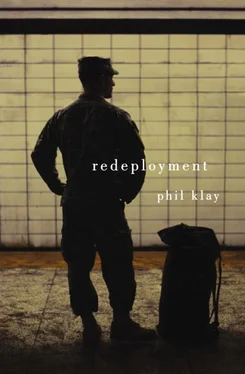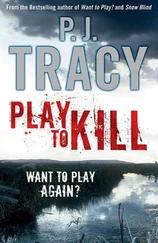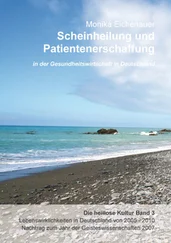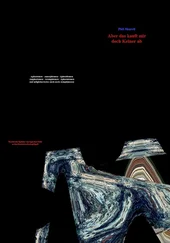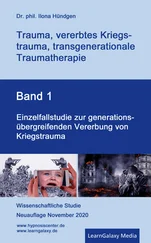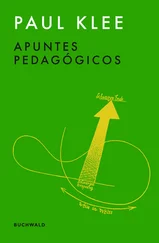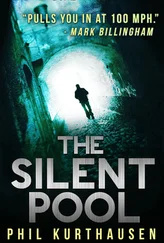“1/9’s got a lot of Marines who’ve been over three, four, five times,” I said.
He nodded. “Sir, I know what it’s like to have really bad things happen.”
Impossible to argue with that.
“It’s very hard,” he said, his voice calm, as though he were describing weather patterns. “Chances are, these guys are gonna have to deal with the same thing.”
“Some probably will.”
“I’m good with people,” he said. “I’d be good with that.” He spoke with absolute composure. It made the room around him feel cold and still.
“Good to go,” I said. “I’m glad you’ll be over there. They’ll need good NCOs.”
I went through some of the steps he’d need to take as he checked out, then sent him on his way. The last thing he asked me was, “Sir, do you think they’ll give Sergeant Deme the Medal of Honor?” It was the only point where a little of his composure seemed to crack to let some emotion through.
“I don’t know,” I said. “I hope so.” It hardly seemed a decent answer.
• • •
I saw Vockleronly two more times after that day in my office. First was at the ceremony where they awarded Sergeant Deme the Navy Cross, where he and Boylan both tried and failed to avoid crying. That was the week I got my acceptance letter from NYU. I was certain I wouldn’t have gotten in without my Marine Corps résumé. To NYU, I was a veteran. Two deployments. That meant something to them.
The last time was the day Vockler left for Afghanistan. I was doing a three-mile run during my lunch break and his company was staged up off McHugh Boulevard, waiting for the buses. The families had enough U.S. flags that if you’d draped yourself in the Stars and Stripes it’d have constituted camouflage, and it was hot enough that every fat uncle there had pit stains big enough to meet in the middle of their chest.
Vockler was in a circle of Marines, all of them smoking and joking like they were about to go on a camping trip, which from a certain perspective was true.
I stopped my run and dropped by. Vockler saw me and grinned. “Sir!” he said. He didn’t salute, but it didn’t seem disrespectful.
“Corporal,” I said. I put my hand out and he shook it vigorously. “Good luck over there.”
“Thank you, sir.”
“You’ll do great,” I told him. “Handling your transfer, that’s one of the things in my job I get to feel proud of.”
“Oo-rah, sir.”
I thought about making some sort of joke, like, “Stay off the opium,” but I didn’t want to force anything. So I continued on my run, and three weeks later I was out of the Corps.
• • •
There’s a monthafter my discharge I can’t really account for. I traveled. I moved to New York, and then I think I spent a lot of time in my underwear, watching TV. My mom says I was “decompressing.”
At the time, most of my college friends were in corporate law or investment banking or were reevaluating life after dropping out of Teach for America.
Strangely, I started feeling more like a Marine out of the Corps than I’d felt while in it. You don’t run into a lot of Marines in New York. All of my friends thought of me as “the Marine,” and to everyone I met, I was “the Marine.” If they didn’t know, I’d make sure to slip it into conversations first chance I got. I kept my hair short and worked out just as hard as before. And when I started at NYU and I met all those kids right out of undergrad, I thought, Hell, yeah, I’m a fucking Marine.
Some of them, highly educated kids at a top five law school, didn’t even know what the Marine Corps did. (“It’s like a stronger Army, right?”) Few of them followed the wars at all, and most subscribed to a “It’s a terrible mess, so let’s not think about it too much” way of thinking. Then there were the political kids, who had definite opinions and were my least favorite to talk to. A lot of these overlapped with the insufferable public interest crowd, who hated the war, couldn’t see why anybody’d ever do corporate law, didn’t understand why anyone would ever join the military, didn’t understand why anyone would ever want to own a gun, let alone fire one, but who still paid lip service to the idea that I deserved some sort of respect and that I was, in an imprecise way that was clearly related to action movies and recruiting commercials, far more “hard-core” than your average civilian. So sure, I was a Marine. At the very least, I wasn’t them.
• • •
NYU prides itselfon sending a high number of law students into public interest, “high” meaning 10 to 15 percent. If an NYU student gets a public interest job that pays under a certain amount, they get partial or full debt forgiveness, saving them more money than the average American makes in three years. Like everybody else without a Root Scholarship or wealthy parents or a fiancée at a hedge fund, I’d sat through NYU’s presentation on the program and thought, Oh, they want me to work my ass off and live in Bed-Stuy for six years. With incentives like that, four out of five NYU students take a good look at public interest jobs, hem and haw, consider the trajectories of all the fire starters they admire, and then go to the same huge law firms as everybody else.
Joe-the-corporate-lawyer told me, “Do Legal Aid. Do the Public Defender’s Office.”
We were having drinks at a rooftop bar with a stunning view of the Chrysler Building. The drink Joe had bought me was made with a cardamom-infused liquor. I’d never had anything quite like it.
“I’m not really an idealist anymore,” I said.
“You don’t have to be,” he said. “You just have to be a guy who doesn’t want their life crushed doing shit that isn’t even mentally challenging. Sometimes I hate my clients and want them to lose, but that’s actually a rare improvement over most cases, which involve huge corporations where I can’t even bring myself to care. Aside from bonuses, which get smaller every year, I’m on a set salary. But I bill by the hour, which means the equity partners make more money the more I work. And nobody works their ass off for ten years to become partner because they’ve got a burning ambition to improve the lifestyles of first-year associates. They do it for money. And so do I.”
“You’re paying off law school and college debt,” I said.
“Which you won’t be,” he said, “thanks to the G.I. Bill and the Yellow Ribbon Program and your savings from the Corps. If you go my route, you’ll be stuck doing doc review every day and every night and every goddamn weekend and you’ll want to blow your brains out.”
Joe was right about the debt, but I already had some experience as a true believer, and if the Marine Corps was any indication, idealism-based jobs didn’t save you from wanting to shoot yourself in the head.
• • •
Paul-the-Teach-for-America-dropout told me,“If you go public interest, be careful where you go.”
We’d met up in Morningside Heights at the railroad apartment he shared with his two roommates. The place was schizophrenically decorated with old “Rage Against the Machine” posters, framed New Yorker covers, and Tibetan prayer flags.
“America is broken, man.” Paul took a swig of beer. “Trust me, you don’t want to be the guy bailing water out of a sinking ship.”
“Iraq vet,” I said, pointing at my chest. “Been there, done that.”
“Me too,” he said. “I’ll throw my middle school tour against your deployment any day.”
“They shoot at you?”
“One day a student stabbed another kid.”
That wouldn’t have trumped Vockler or Boylan, and it sure as hell didn’t trump dead, heroic Deme, but it trumped the shit out of me. Closest I ever came to violence was watching the injured and dying come into the base hospital.
Читать дальше
